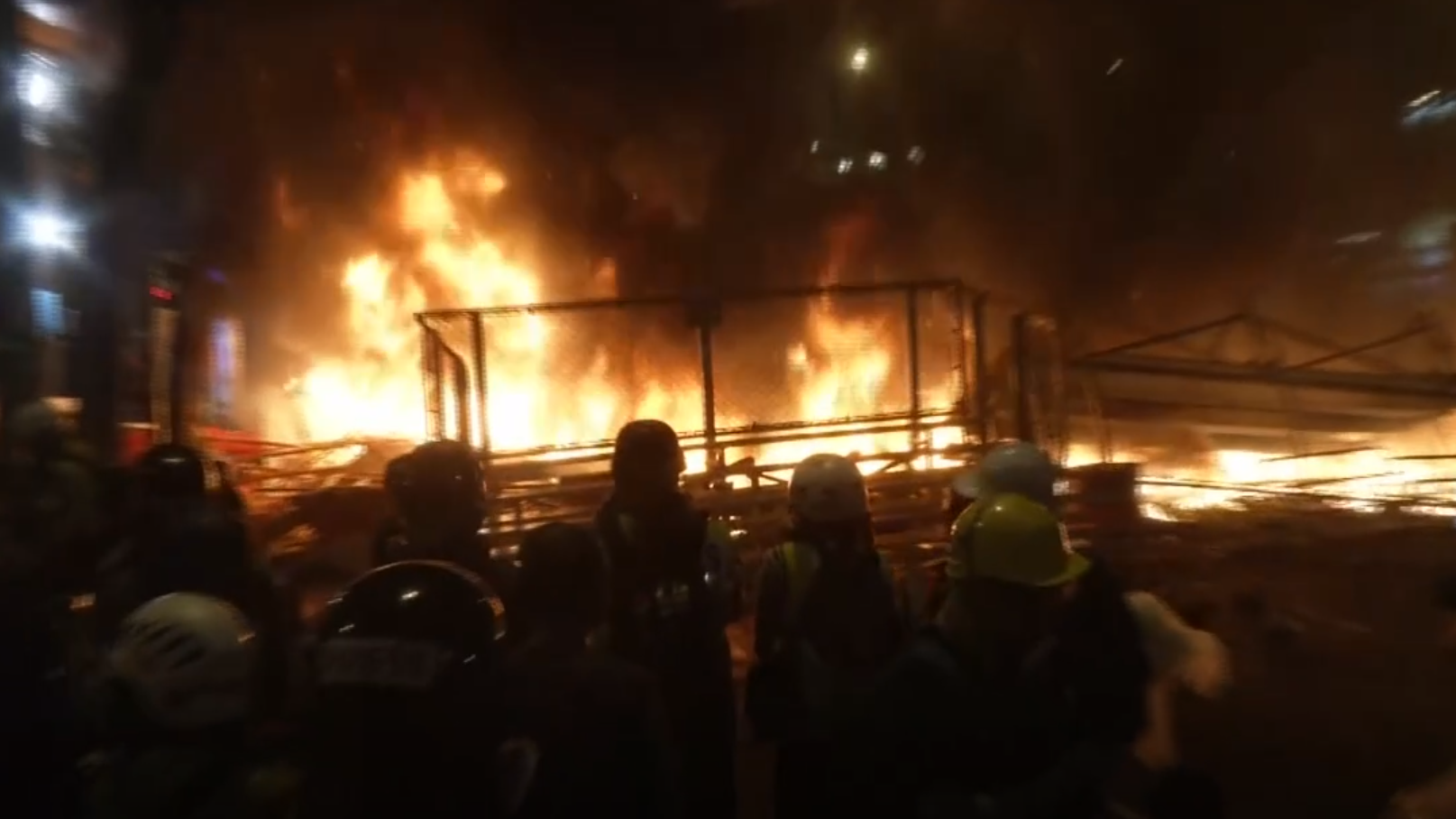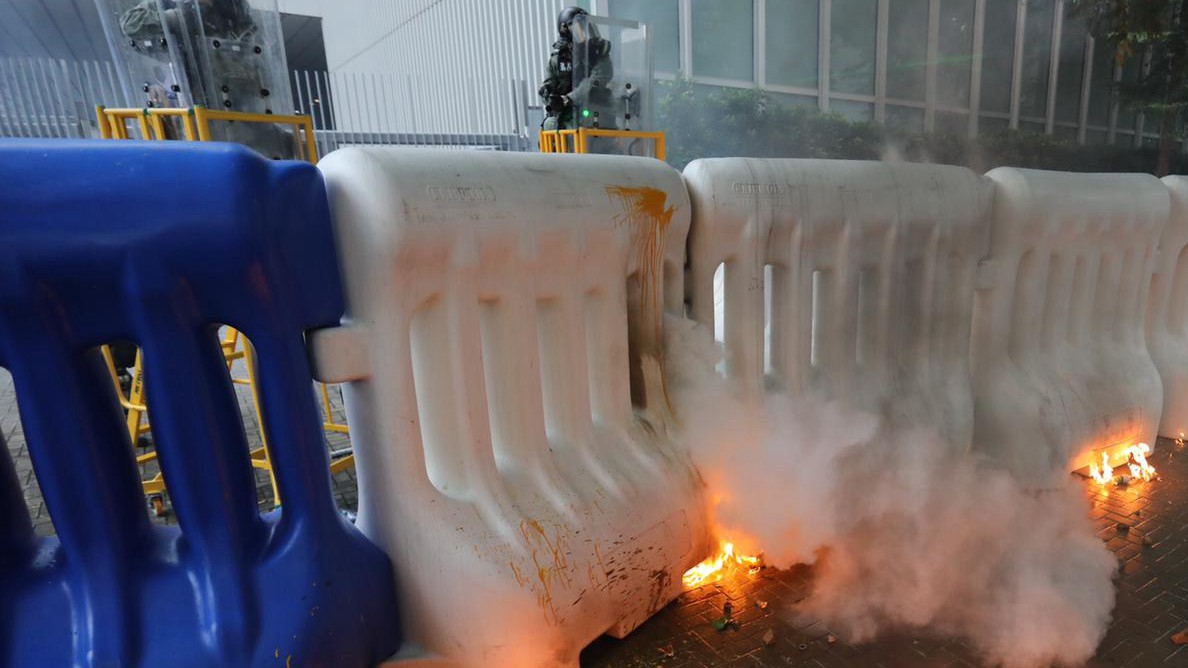

Editor's note: Tom Fowdy, who graduated from Oxford University's China Studies Program and majored in politics at Durham University, writes about international relations focusing on China and the Democratic People's Republic of Korea. The article reflects the author's opinions and not necessarily the views of CGTN.
In Western folklore an old saying goes "Nero fiddled while Rome burned" – referring to the mythic take that Roman Emperor Nero was personally responsible for, or at least purposefully negligent of, the great fire that ravaged the city in 64 AD.
Built upon this story, the contemporary idiom serves to describe scenarios whereby individuals do something "trivial and irresponsible in the midst of an emergency" – thus glorifying or even taking pleasure in catastrophe.
Both figuratively and literally, this phrase could not apply to contemporary Hong Kong more. On Saturday night, we saw a city up in flames. In Hennessey Road, violent activists hurled petrol bombs in the direction of police officers, as well as targeting high-profile properties in the wider Wan Chai area. Photographs of the aftermath showed streets coated with flames.
High-profile activists, as well as the Western media, appeared to glorify the events rather than expressing concern for the widespread damage and threat to public safety. As a researcher for Demosisto, Jeffrey Ngo posted on Twitter, along with a picture of a street piled with debris on fire, "This is revolution in our 21st-century postmodern metropolis."
The BBC praised activists as "strategic, organized and increasingly willing to resort to violence" – painting their activities purely in the light of self-defense from the police.
The West believes that it truly has what is best for Hong Kong, and is willing to proclaim that loudly and clearly. However, what it is encouraging and supporting today has become nothing short of monstrous.

Violent protesters threw petrol bombs at the Central Government Complex during Saturday's illegal assembly in Hong Kong. /CGTN Photo
Far from the self-proclaimed "Asia's World City" – activists and enablers have now created a morbidly dystopian war zone where unprecedented levels of violence, destruction and chaos have become the norm of interaction.
If continued, these "scorched earth" strategies will surely mark the end of the city as a global financial and capital hub – destroying its reputation, credibility and iconic image.
The behavior of many activists in Hong Kong is enabled by the blanket support of the Western media. It is very much an established convention that no matter what the protesters do, no matter how destructive or contemptible it may be, they will receive blanket and uncritical support from journalists who will frame it as justified response against the state and police, fighting for a noble cause.
Last night was perhaps one of the strongest examples of that.
These images of carnage are hailed and praised, even though few would tolerate it so frequently in their own neighborhood. Anywhere else in the world, arson, which can be defined as the deliberate initiation of fire with the intent of causing harm or damaging property, is a serious crime punishable by imprisonment.
Yet here, it is something to be treated as a normal and noble means of resistance. If the police fight back to secure public order, safety and stop the perpetrators, they are depicted as the ones in the wrong. If they turn hoses at activists causing fires, it is apparently "police brutality." Up is down, white is black and left is right.
However, what will the "prize" be to Hong Kong in the end? These activists will not get what they want, but they will literally and metaphorically burn their city to the ground. Scenes like this do not reflect Hong Kong as the iconic "Asia's world city" famed for its prestige business, financial opportunities and iconic cultural traits.
They increasingly show it to be a dystopian, dysfunctional and destitute place marked with destruction and desolation. Investors will stay away and tourists will think twice. The stain to its credibility will run deep, and things may never be quite the same again.
(If you want to contribute and have specific expertise, please contact us at opinions@cgtn.com.)

Copyright © 2018 CGTN. Beijing ICP prepared NO.16065310-3
Copyright © 2018 CGTN. Beijing ICP prepared NO.16065310-3